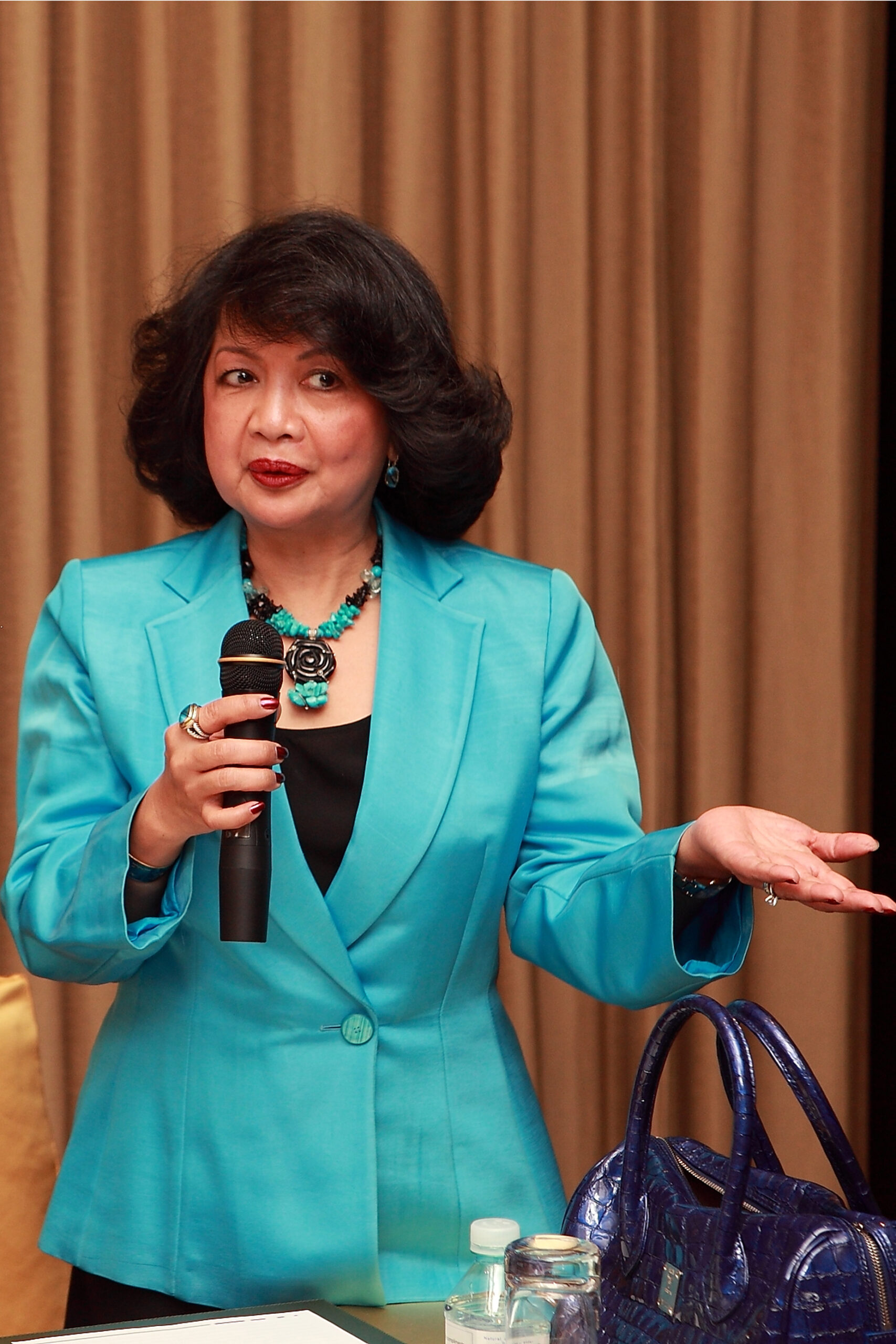
PUSHING FOR CHANGE
“I always wondered why women didn’t have a business forum of their own to connect and discuss how to advance their careers and speed up their economic progress.” That’s why the Summit was founded 33 years ago. She focuses on solutions, rather than problems: “How many times can you say women aren’t paid as much as men? I want to know what companies and countries are doing to make pay equity happen, so what we do at the Summit is to have exchanges on what works.”
She also insists that the Summit be global – “I want women to be players and leaders in the global market. To sit across from women from countries they might never go to.” Speakers come from all over the world: “Some of the best solutions come from Africa, from South Asia, because when resources are limited, people are forced to be creative - you tend to do more with less. I think of every Summit panel as Noah’s Ark, with perspectives from different countries and companies. We rotate annually to different continents to make it accessible to women everywhere, instead of always coming to one place, like the World Economic Forum. It claims to be a platform for world leaders, but how many women Heads of State and women CEOs are there? Not enough. I feature women in charge at the Summit because I want people to see what’s possible.”

What progress have women made over the last 30 years?
There are now far more women in the workplace. Not everywhere, but there’s been tremendous progress. The World Bank says that nearly 40% of global GDP is due to women’s economic output. Women are the majority of college graduates, whether in Bangladesh or Mexico. The problem is, they don’t have the jobs to use the training they already have. The other incredible advance is that women entrepreneurs are now a third of all small business owners globally. The issue is they can’t access international markets, or secure enough funding to grow. So, at the Summit I try to make those connections that facilitate cross-border business, as the Thai Chamber of Commerce did with the Vietnamese Chamber at the last Summit to connect their women entrepreneurs.
And some women do it on their own – at the 2002 Barcelona Summit, I found a woman selling pashmina shawls out of a suitcase in the bathroom, because “everyone has to go to the bathroom!” Over the years, I introduced her to other women’s business associations, and she went to their conferences. She’s since found partners in Japan and Iceland to sell her products and now has a stand-alone store and sells online. That motivated me to set up the Women’s Expo, to showcase products from women entrepreneurs at every Summit–why should they sell their stuff in the bathroom?
Why is the next GSW being held in Dubai?
We haven’t been to the Middle Eastern region for a long time. And part of what I do is to challenge stereotypes, and not just gender stereotypes. The UAE is very progressive, which many don’t know: 50% of the parliament and 30% of the cabinet is female. They have a quota for women on corporate boards, like Italy.

What is your impression of the current Italian situation?
We need to be vigilant. Right-wing forces in different parts of the world want to turn back the clock.’ She points to the loss of reproductive rights in the US and adds that the current Italian government would also like more women in traditional roles. ‘A part of this stems from zero population growth; no economy can grow if you don’t have enough people. Right-wing governments encourage women to stay at home and have children because they want more workers in the future and don’t want the liberal forces that women at work bring with them.
What advice do you have for Italians?
Companies must stick with the sustainability argument for diversity. You cannot grow and be competitive without a diverse workforce, and in Europe that means more women. If you don’t use the talents of half of the country, the economy suffers. Culture is the biggest impediment in the workplace. The idea that care work in the family is the responsibility of only one gender is still stuck in Italy. And there are still pockets in the United States that have similar opinions.
Do you feel optimistic about the future?
I always feel optimistic! You cannot be an advocate if you’re not an optimist. Change is incremental. It’s Sisyphean. Every rock that falls down, you push it back up again and try and get it a little bit higher.’ Like paid parental leave in the US: ‘It’s one of the pieces of legislation that I testified for in Congress, but we were only able to get passed unpaid leave. Now we need paid leave, which you have in Italy, but we’re unlikely to get it, given the composition of Congress now. But do you give up? No, you work with the private sector instead. You do what you can in every arena where there’s a door. You continue to push for change.